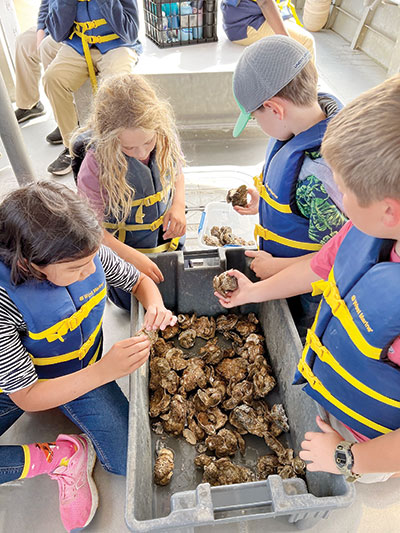
A marine science thread runs through the curriculum at Chesapeake Academy (CA) in Irvington. Students begin to explore local ecosystems with dip nets and tiny fingers in pre-kindergarten and continue to make use of the school’s proximity to the Chesapeake Bay all the way through their tenure.
Recently, the Friends of the Rappahannock (FOR) hosted science students in grades sixth through eighth for a kayak tour of Carter Creek to highlight various erosion control measures and calculate sediment in the water to evaluate water quality.
“For our students who live, learn, work and play in the Chesapeake Bay watershed, learning about the world around them inevitably includes a deep dive into marine science. And learning about the systems that impact our region leads our students to become responsible stewards of one of the richest estuaries on Earth,” said Head of School Trip Cogburn. “CA science students, led by their teacher, Robin Blake, hit the jackpot in place-based education. In a given year our students will access a variety of up-to-your-elbows experiences that deepen their understanding” of the Middle Peninsula and Northern Neck of Virginia.
The Tybee Island Field Study for eighth graders is perhaps the most in-depth marine science study and it draws on students’ deep familiarity with the bay estuarine ecosystem to inform their comparisons with those in Tybee Island, Ga.
“Our students look forward to this trip for years, but it is no vacation though it may be a rite of passage. Each student becomes the expert in one field of marine biology and develops a presentation to share with others. Students spend time before the field study outlining questions, they research their topic from a variety of angles on the field study and they present their findings to the school community and visiting scientists,” said Blake.
There's more to this story...
Are you a subscriber? Log in
Many more news articles, photos and ads are available
only to those who subscribe to our
printed newspaper or our online e-Edition.
Pick up a copy or Subscribe today!
| e-Edition | Printed version |



